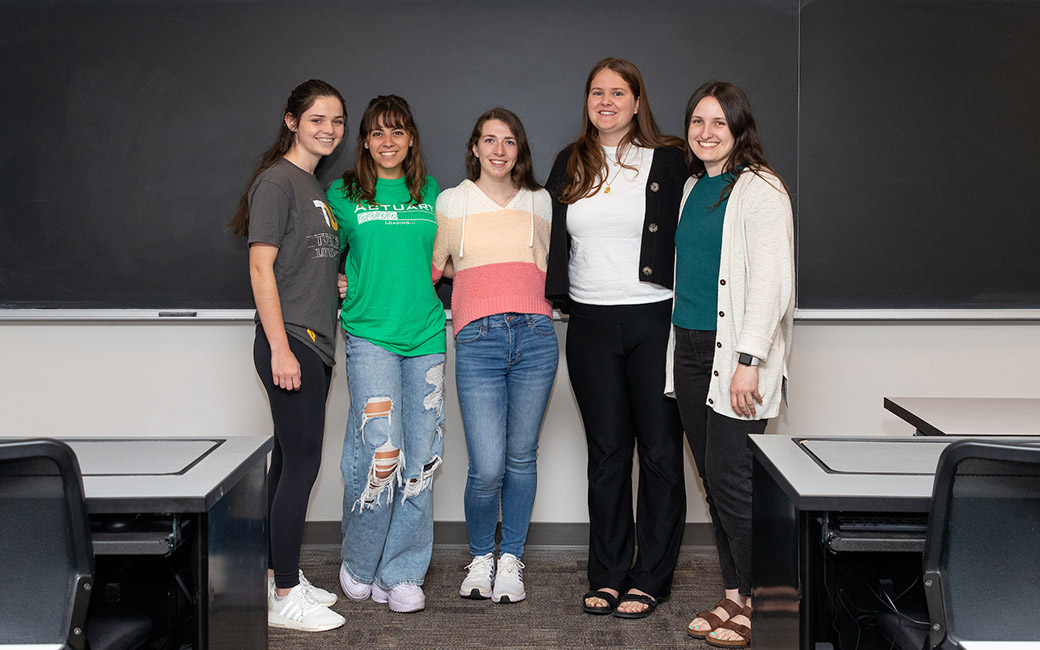Math students place 2nd in global competition, learn real-world skills
Society of Actuaries Research Institute recognizes TU students for excellent actuarial skills
By Rebecca Kirkman & Kyle Hobstetter on August 11, 2022

Five Towson University mathematics students finished the spring term with a second-place win and a $3,000 grant from the Society of Actuaries Research Institute’s (SARI) global 2022 Student Case Study Challenge.
Recent graduates Léa de Lausnay, Emily Mackert, Erin Stales and Serena Wernert, as well as actuarial science and predictive analysis graduate student Angela Luthcke, placed second among 59 teams from universities across the globe. A second team from TU was also recognized this year as a semifinalist.
The students participated in the challenge as part of professor Min Deng’s Senior Seminar in Actuarial Science.
SARI provides trusted knowledge, extensive experience and new technologies to help effectively identify, predict and manage risks. For the competition, students used predictive analytics, data analysis and probability to construct a fictional competitive soccer team and analyze the impact on a country’s economy.
To create their proposal, the TU students turned to experience from prior courses, including Applied Regression and Time Series Predictive Modeling and Writing for Business and Industry.
“We have an extensive background in modeling, so we are able to take a set of data and know what to do,” says Luthcke.
Team members also point to support from Deng, director of the actuarial science and risk management program, as a key to their success.
“She is the most wonderful professor and adviser,” says Luthcke. “She goes beyond the academic setting and will go out of her way to find opportunities for you.”
Deng is one example of TU’s distinguished faculty mentors pushing the possibilities of engaged learning, providing students with exceptional, student-centered educational experiences.
The students also learned new skills they can take with them in the future, like the programming language R used to code the model for predictive analysis.
“For our major, we only needed to take Java and C++, so it’s interesting to see a new [language] that many companies use,” says Wernert. “All of the languages are linked, so once you know one, it’s easy to pick up the others.”
The students appreciated applying their skills to a challenge closer to what they can expect in the real world.
“In the past, we’ve been given pretty much a perfect data set, and we get a perfect solution,” says Mackert. “With this, we had to adjust and readjust so many times to emulate what we’re going to be doing in the real world. The biggest takeaway for me was you have a plan, you readjust and you keep going. It’s a lot of trial and error.”
The recognition gave the graduates confidence as they embark on their next steps.
“It makes me feel really excited for the future,” says de Lausnay, who interned at Oregon-based financial services group The Standard this summer before she returns to TU this fall for the graduate program in actuarial science and predictive analysis.
“It was just the perfect ending,” Mackert adds. “To work so hard and to be a group of five women and the first ones to place for Towson—that was a huge accomplishment. It’s the perfect bow at the end of a long academic career.”